The 2021 Young Scholars
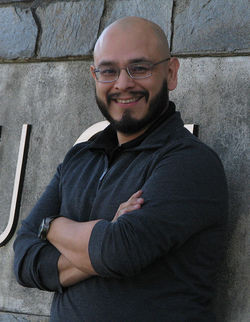
Guillermo Avilés-Rodríguez
Ph.D. Candidate, Theatre and Performance Studies, University of California, Los Angeles
Paper submission: "From Nuestro Pueblo to the Watts Towers: A Monument’s Secreted Chicana/o Signification"
Guillermo Avilés-Rodríguez is a Ph.D. candidate in the Theatre and Performance Studies department at UCLA and a Lecturer in Chicana/o Studies and Theatre at California State University, Northridge. He has collaborated with Spanish-speaking theatre groups including Grupo malayerba from Ecuador, Yuyachkani from Peru and Teatro de los andes from Bolivia. He's also worked with Los Angeles-based Cornerstone Theater Company. His academic articles include: “Theatre and Transit: A Transit-Oriented Site-Specific Triptych” in Theatre Forum; “Darning Zoot Suit for the Next Generation” in Aztlan; “Ethics and Site-Based Theatre: A Curated Discussion” (co-published) in Theatre History Studies; and the forthcoming “Playing Hopscotch on Dangerous Ground: Site-Specific, Transit-Oriented Opera in Los Ángeles” in The Cambridge Opera Journal.
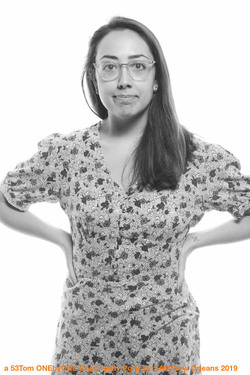
Amanda Figueroa
Co-founder & Resource Manager, Brown Art Ink
Ph.D. from Harvard University, American Studies
Paper Submission: "Anzalduian Museology"
Amanda believes museums are tools to fight racial and economic injustice. Originally from El Paso, she's a graduate of Mary Baldwin College and George Washington University. Her work was recently featured in the anthology Gender, Sexuality, and Museums.

Juan Pablo Mercado
Faculty, History Department, Chabot College
Ph.D. from University of California, Los Angeles, History Department
Paper Submission: "The Great Wall of Los Angeles: Democratizing Public Memory"
Juan Pablo earned his Ph.D. from the History Department at UCLA under the direction of Professor Juan Gómez-Quiñones. He also holds undergraduate and graduate degrees in Chicano Studies from UC Berkeley and San José State University, respectively. His research focuses on the uses and function of public art. Specifically how public art can transmit social memory and serves as an important site of remembering for individuals and communities whose history often times gets distorted, marginalized or omitted. Dr. Mercado is a faculty member in the History Department at Chabot College where he teaches Chicana/o History, Early American and 20th Century U.S. History. Dr. Mercado also lectures in the Chicana and Chicano Studies Department at San José State University. Juan Pablo currently serves as the Northern California Foco Representative of the National Association for Chicana and Chicano Studies (NACCS).
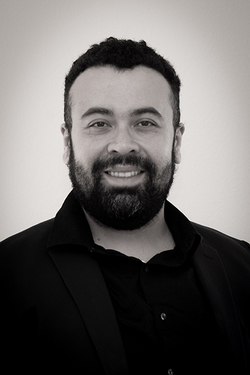
Carlos A. Rivas
Ph.D. Candidate, Department of Art History, University of California, Los Angeles
Paper Submission: “Early Modern Racial Classification in Latin America and the construction of Central American Mestizaje”
Carlos Rivas (he/him/his) is a PhD candidate in Art History at UCLA. Born in Los Angeles to undocumented parents who fled the Salvadoran civil war, Rivas is a scholar committed to advancing Latin American, Latinx, and indigenous epistemologies in the Humanities. He has taught courses on Latin American visual and material culture at UCLA, Pitzer College in Claremont, CA and Cal State Long Beach. Rivas is involved in numerous Latinx scholar and activist collectives in Southern California, and has worked to advance Central American Studies at UCLA. Rivas’s research examines landscape and cartography in Central America and the development of mestizaje as a political racial category in eighteenth-century Guatemala and El Salvador.
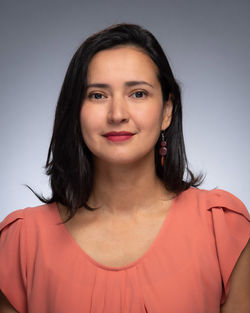
Tatiana Reinoza
Assistant Professor of Art History, Department of Art, Art History, and Design, University of Notre Dame
Ph.D. from the University of Texas at Austin, Art History
Paper Submission: "The Social Ecologies of Latinx Printmaking"
Tatiana Reinoza is an art historian whose research and writing focus on contemporary Latinx art. She received a Ph.D. in art history from the University of Texas at Austin in 2016. Currently, she is an Assistant Professor of Art History at the University of Notre Dame. She specializes in the history of printmaking in Latinx communities in the United States with an emphasis on the themes of immigration, race, and histories of colonialism. Her own journey as an immigrant from El Salvador and interdisciplinary training—in the fields of ethnic studies and art history—have shaped her intellectual formation. She is also at work on an edited anthology that commemorates the fiftieth anniversary of the East Los Angeles graphic workshop Self Help Graphics.
Her academic writing has appeared in the Archives of American Art Journal; alter/nativas: latin american cultural studies journal; Aztlán: A Journal of Chicano Studies, as well as in edited anthologies such as A Library for the Americas: The Nettie Lee Benson Latin American Collection (University of Texas Press, 2018) and exhibition catalogues such as ¡Printing the Revolution! The Rise and Impact of Chicano Graphics, 1965 to Now, ed. Carmen Ramos (Smithsonian American Art Museum, 2020). Her research has been supported by the Society of Fellows Postdoctoral Fellowship at Dartmouth College and the Inter-University Program for Latino Research Mellon Dissertation Fellowship. She serves on the Advisory Board of the digital image library Artura.org, which promotes the work of underrepresented artists, and is also a Board Member of Interfaith Action in Southwest Michigan.
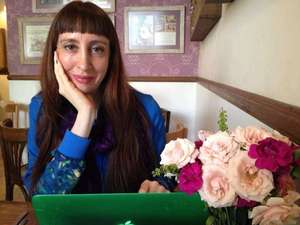
Alexis Salas
Assistant Professor in Contemporary Art History, Theory and Criticism, Department of Art, New Mexico State University, Las Cruces, NM
Ph.D. from the University of Texas at Austin
Paper Submission: "Metal Detecting for Maize: Vick Quezada Planting Queer Material Histories in the Indigenous-Latinx Landscape"
Alexis Salas is an art historian of global modern and contemporary art with a specialization in Latin American and LatinX art. Salas finished a Ph.D. at the University of Texas at Austin with a dissertation titled “Disparity at Play: The Artists’ Projects of Temístocles 44 (Mexico City, 1991-2003)'' in May 2020. Salas holds an M.A. in Art History from the University of Chicago, a B.A. in Art History and Spanish-Language Literature from Amherst College, and has studied at Universität der Künste Berlin and California Institute of the Arts. Salas has been a recipient of the Jacob Javits Fellowship, Fulbright Fellowship, the DAAD Fellowship and several awards to conduct research, teach, and lecture in Latin America, Europe, and North America. Salas is an Assistant Professor at New Mexico State University in Las Cruces.
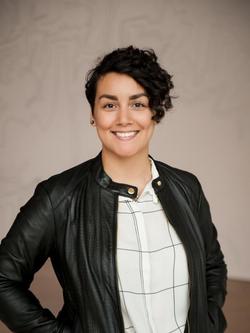
Rose Salseda
Assistant Professor, Department of Art & Art History, Stanford University
Ph.D. from the University of Texas at Austin, Art History
Paper Submission: "Black, Blue, and Brown: Race, Mourning, and Unrest in South Central Los Angeles"
Professor Rose Salseda is an assistant professor in the Department of Art & Art History at Stanford University. Specializing in the fields of African American and U.S. Latinx art, and with a research background in the art of the African Diaspora in Latin America and the Caribbean, Professor Salseda’s research explores the politics of race, identity, and representation. Her first book, Unrest: An Art History of the 1992 Los Angeles Riots, foregrounds uprising as a response to the injustices of state violence. Closely reading artworks made by three generations of artists, Professor Salseda reveals how artists have challenged racially polarizing media portrayals and accounts of the 1992 uprising and underscored the complex intergenerational, cross-racial, and immigrant experiences of anti-Black racism and xenophobia in the United States and beyond.